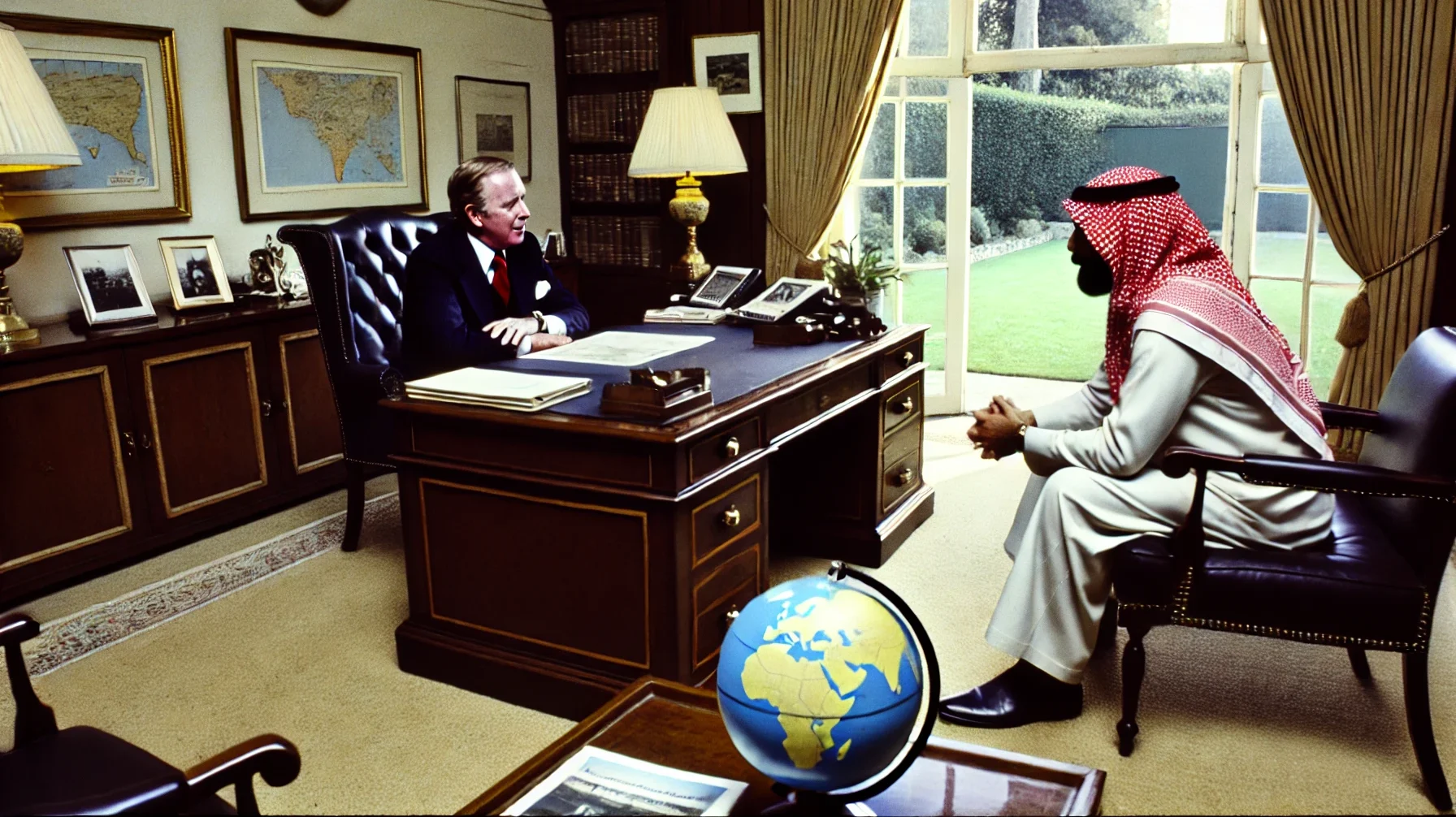Stevenson’s Opinion on Resolving the Palestinian Issue
Al Qabas, Kuwait, August 29
In the midst of these tragic events and the dark days that our Arab nation, our Palestinian brothers, and their cause are experiencing, I recalled the interview we conducted with the ambassador of Great Britain, Mr. John Stevenson, which took place in Khartoum. This conversation, which took place in 1979, coincided with the news agencies’ announcement of a peace agreement between the Arab Republic of Egypt and the Zionist entity, signed by the late President Anwar Sadat and the prime minister of the Zionist state. Seizing the opportunity, I sought the perspective of the British ambassador, who possessed extensive knowledge about the Palestinian issue, particularly since he had lived through the events of the establishment of the State of Israel in 1948 while serving as the British consul general in Jerusalem. Following those turbulent events in Palestine, this British diplomat was appointed as the governor-general of Sudan during the British Mandate and later served as his country’s ambassador to several other Arab nations. During my visit to his office at the British Embassy in Khartoum, I posed the question: “Will the peace agreement between Arab Egypt and the Zionist entity lead to lasting peace, security, and the realization of our Palestinian brothers’ full rights?” With the characteristic calm of the British, the ambassador responded in Arabic: “I have my doubts.” Intrigued, I asked, “Why do you harbor such doubts, Your Excellency?” He replied, “As you know, when the State of Israel was founded and Israeli militias invaded Palestinian territories, I witnessed those events unfold hour by hour. I was part of the team overseeing the evacuation of Palestinians from their homes, who were assured they would return within a week—a promise that inspired many Palestinian women to leave their children’s milk on the shelves, hoping to return shortly. However, the displacement lasted much longer, and to this day, they have not returned. Consequently, some nations proposed resettling Palestinians in countries like Canada, Australia, or even Africa. The Palestinians, however, vehemently rejected this idea, insisting on returning to their homes, regardless of the sacrifices involved. This determination was not only deeply rooted in the older generation but adopted by their sons and grandsons, who took up arms, complicating the issue further. Thus, any agreement not reached directly between the conflicting parties in Palestine is futile. I believe the solution lies in the two sides meeting at the negotiating table, addressing the Palestinian issue in its entirety—both the positive and negative aspects—and emerging with pure hearts dedicated to achieving peace through a mutually acceptable decision endorsed by the United Nations and supported by major global powers. If this approach is taken, peace can prevail in the land of Palestine.” My friend, the British ambassador, Mr. John Stevenson, retired after his tenure in Khartoum, which was his final diplomatic mission. He then returned to his homeland. Meanwhile, I was transferred from Khartoum to Greece as the ambassador of our country, Kuwait. During my time there, I made a private visit to Mr. Stevenson at his residence. He had a house surrounded by gardens, part of which he had converted into a charming country restaurant adorned with tree branches, where he served delightful British and European meals. But I often reflect on the esteemed ambassador’s statements—and contemplate them today, in our current political climate, more than ever before. —Mohammed Salem Al-Balhan (translated by Asaf Zilberfarb)
Give the gift of hope
We practice what we preach:
accurate, fearless journalism. But we can't do it alone.
- On the ground in Gaza, Syria, Israel, Egypt, Pakistan, and more
- Our program trained more than 100 journalists
- Calling out fake news and reporting real facts
- On the ground in Gaza, Syria, Israel, Egypt, Pakistan, and more
- Our program trained more than 100 journalists
- Calling out fake news and reporting real facts
Join us.
Support The Media Line. Save democracy.



